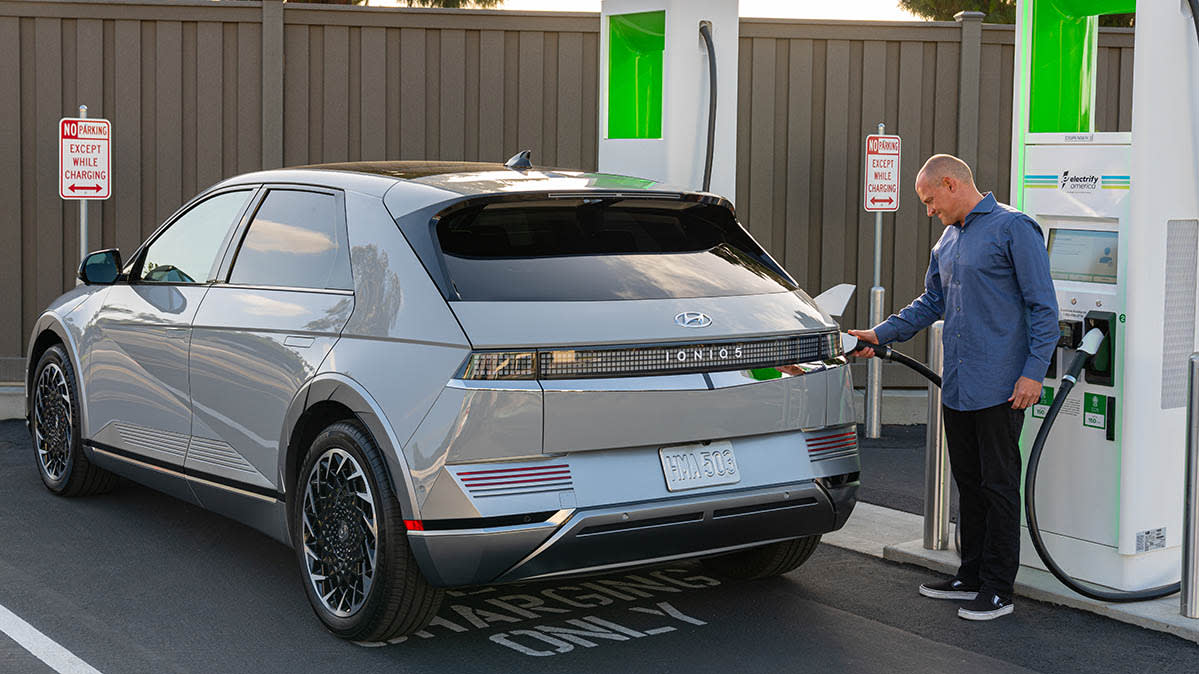
The true benefits of the administration’s proposals will depend on specifics that have yet to be released, says CR’s Harto. “Based on the preliminary information, we are hopeful that the White House is moving forward with a stronger initiative for cleaner vehicles that will turn these aspirations and targets into enforceable requirements, but the details will matter,” he says.
Carbon dioxide and other greenhouse gas emissions from motor vehicles are linked to global warming and climate change. Lower-income communities and communities of color are on the front lines of the impacts of climate change, including drought and floods. Pollution from motor vehicles is a serious threat to human health, and it is proven to increase the risk of heart disease, lung cancer, and asthma—especially for those living near major roadways.
“There’s no question that we’re way behind,” says Rawn. “To its credit, the Biden administration made this a priority and moved it forward relatively quickly. They stepped forward to stop the bleeding.”
Rawn says automakers are more likely to make major investments in new fuel-saving and emissions-reducing technologies if they are certain that regulations will be in place for the long haul.
In an email, a spokesperson for the automotive industry trade group Alliance for Automotive Innovation told CR that “auto manufacturers are committed to a net-zero carbon transportation future, and we look forward to working with the Administration on these and other efforts from the U.S. Department of Transportation regarding a cleaner, safer, smarter future.” The email also referred to new proposed fuel economy standards as a “chance to realign the auto industry in preparation for greatly expanding electrification of the fleet and rapidly decreasing [greenhouse gas] emission after 2026.”
Although more automakers have been offering an increasing range of gas-powered vehicles with more fuel-efficient engines, the market trend toward larger SUVs and pickup trucks led to a slight increase in greenhouse gas emissions between 2018 and 2019, the most recent year the EPA has data for.
“Under the Obama administration’s fuel economy rules, the automakers ramped up really quickly and did really well at improving mileage for the first handful of years and got a bunch of credits, but then they kind of coasted and rested on their laurels,” says Harto, CR’s senior policy analyst.
Compounding the issue is that it could take decades for the cleaner vehicles of tomorrow to replace the less efficient models on sale today. On average, today’s passenger vehicles have been on the road for about 12 years, according to the Bureau of Transportation Statistics, and drivers are increasingly holding onto their vehicles for even longer than that.
That’s why Rawn and others are already looking past today’s announcement. “It’s important that the next iteration of regulations come out as soon as possible,” she says.
"fuel" - Google News
August 05, 2021 at 04:01PM
https://ift.tt/37mOxDK
Biden Administration Wants More Electri, Better Fuel Economy - ConsumerReports.org
"fuel" - Google News
https://ift.tt/2WjmVcZ
Bagikan Berita Ini















0 Response to "Biden Administration Wants More Electri, Better Fuel Economy - ConsumerReports.org"
Post a Comment